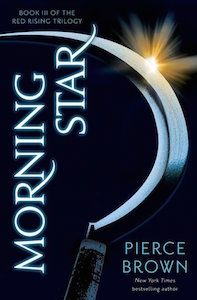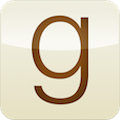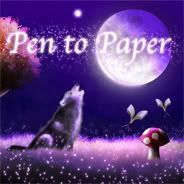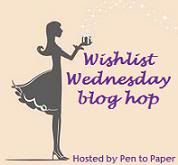We have been lucky enough, here at Pen to Paper, to get an interview with David, in which he has shared with us some exclusive information!
So, I'd like to welcome David to Pen to Paper!!
First of all, would you tell us a little bit about yourself?
I was born in London and grew up there. Always the proverbial "lonely boy" I didn't really have many friends. I was quite timid and left one school because of bullying, transferring to another school where I wasn't really any happier. I played truant a lot and dropped out of school when I was 15. My mother had been diagnosed with cancer a couple of years before that and she died just before my 16th birthday. In addition to being a lonely kid I was also a selfish teenager and I had effectively "withdrawn" from my mother before she died - although I have to add that no one told me her cancer was terminal, right up to the day she died. The only hint I had was when she asked me (a couple of times) if she had been a good mother. Because I wanted to encourage her to be optimistic, I rather foolishly brushed off these questions and told her not to "talk that way." Even now I hope she understood this to mean that I was in denial and wasn't just trying to avoid answering the question.
After she died, my father decided that it was time for our family to make a new life in Israel. We had always talked about this (he had many relatives in Israel), but now it was time to act on it. The only trouble was that this was just the time when I was finally coming out of my shell. Although still painfully shy, I was starting to meet people my own age (especially girls!) by joining various political organizations such as the Labour Party, the Fabian Society, Friends of the Earth and even the pacifist Peace Pledge Union. But I was still tied to my family's apron strings - both financially and emotionally - and so I had little choice but to go along with the plan and live in Israel.
My biography from then on is quite long and intricate - far too long to go into here - but I spent the next 22 years trying to become a published author, before eventually making my first breakthrough. I used to be a keen chessplayer, but I have let it lapse considerably. I didn't realize how much, until i lost to David Howell - when he was six!
Nowadays I have very little free time, as a self-employed writer. When I am not writing, I am usually doing research. However, after a long bout of seclusion, I am back on the dating circuit. So if any single women are reading this...
What kind of books do you most enjoy reading, and why?
Most thrillers - especially legal thrillers.
Which author(s) most inspire you, and why?
My current favourite is Harlan Coben. I like the way his stories are full of twists and turns with practically every chapter ending on a surprise or a cliffhanger - more so than Patterson, Deaver, Connolly, et al. To some extent Dan Brown is also like that, although The Lost Symbol was a bit of a disappointment. The last writer I read who could really keep up the surprises all the way through was James Hadley Chase.
At one time I was a great fan of Sidney Sheldon, but after a few of his books I went off him because his storylines were somewhat amoral and also because he could never quite recapture the heights of The Other Side of Midnight, which I found quite a haunting and disturbing book.
One of the influences when I was younger was Erle Stanley Gardner, creator of Perry Mason, who introduced me to the fine art of the legal thriller. In my twenties I was a fan of Ayn Rand, the radically pro-free-enterprise author who fell squarely into the love-her-or-hate-her territory. I have since withdrawn somewhat from her bombastic style and her over-simplified philosophy. Her most famous book, Atlas Shrugged has some excellent descriptive passages, but it is marred by the interminable speeches which ought to be unnecessary - the story is supposed to speak for itself, and by and large does. Her previous novel, The Fountainhead, is in many ways better because it is more subtle.
Do you have an all-time favourite novel? If so, what is it, and what makes it so special to you?
In the old days the answer would have been Atlas Shrugged, but now it is very hard to say. If I have to name one, I would have to say Lady by actor-turned-writer Thomas Tryon. In some ways it is reminiscent of To Kill a Mockingbird - only better, in my opinion, again because it is more subtle. Also told from a child's point of view, it is set in New England and is about a boy who befriends one Adelaide Harleigh, the towns wealthy and kindly widow who the town's benefactor, but also a bit of a recluse. I don't want to give anything away, but the reason I compare it to the Harper Lee classic is because it also deals with racial intolerance. It has a kind of bittersweet quality to it that left me breathless and deeply moved. I wish to God I could write like that - and I wish also that I had written a fan letter to Tryon while he was alive to tell him how deeply that book affected me.
Two close runners-up would be Nelson deMille's Word of Honour about an ex-army officer accused of being in command over a massacre in Vietnam and They've shot the president's daughter, a political thriller by Edward Stewart. And a book that I have yet to read, but I suspect will be equally good is The Drumbeat of Jimmy Sands by Murray Davies.
Have you always wanted to be an author?
No. When I was a child I wanted to be a scientist, because my uncle was one. To me characters like "Brains" from Thunderbirds and "Professor Calculus" from Tin Tin were COOL!!!!!! My desire to be an author came in two phases. the first was when I was about ten. My sister (two years older) had started writing a "Regency Romance" - she was a keen reader of Georgette Heyer. There was a strong sibling rivalry between us so as she was writing a novel i had to write one too. I started to write a science fiction thriller called Theory. I did sort of finish it many years later, but it wasn't very good. I put those ambitions aside and returned to my dream of being a scientist.
Then, when I dropped out of school at the age of 15, I started writing a screenplay - a children's comedy thriller, with a couple of songs. I wanted to act in it and dreamed of being the next teenage heart-throb. (This was the era of David Cassidy and Donny Osmond.) Shortly after my mother's death, I sent the screenplay to her cousin, Clive Donner, a successful movie director. He advised me what was good and what was bad about it. But he indicated that i had potential as a writer and it was then that I realized that writing was my passion.
Where do you find it most comfortable to write?
In a quiet room with a computer and no one around to disturb me. However I did once write the first eight chapters of what became my young adult thriller Ethan and the Devious Doctor on while sitting on the banks of the Dead Sea and listening to music, on a sheltered bench over the course of three hot days. With a laptop and an MP3 player, I was able to luxuriate on a holiday and do some creative writing at the same time. And it remains one of my best stories - available as an eBook from Amazon... along with the follow-up Ethan and the Cryptic Clues.
When you're working on a novel, do you set yourself a timetable to work to? Do you have any specific routines when writing?
I try to have a timetable... but I don't always stick to it. Although I always aim to beat publisher deadlines and usually stick to self-imposed deadlines.
Firstly I try to plan out the novel in advance in some considerable detail. I often find myself having to change it on the fly, but I like to at least have a detailed plan to motivate me - even if i have to change it. Having a detailed plan is the best way to motivate oneself. The main advantage is not that I know exactly where i'm going to go - because like I said, it often changes - but having the workload broken down into small chunks.
That's also why I now tend to write short chapters. It's the best cure for writer's block. Just like it is easier for a reader to read short paragraphs, it is easier for a writer to aim to complete short chunks. That doesn't mean I write slowly. Indeed, quite the contrary: once I'm "in the zone" I can find myself writing at breakneck speed. But knowing that it is only a short distance to the next resting post makes it easy to start. Just like the reader is spurred on late at night with the thought that "the next chapter's so short i may as well read it." So the writer is motivated to write that "one more short chapter" before the next coffee-break.
Some people say that short chapters make the writing more superficial. But I find that I put just as much detail into my books with short chapters as I did in the earlier ones with long chapters. It's just that it's split up and interspersed more, like a dovetail shuffle of a deck of cards - we cut away and then cut back, ratcheting up the tension.
As far as work routines go, I follow the rule that if I start early in the day then I am allowed to finish early. If I start late, then I must finish late. I guess you could say I give myself a detention as punishment for impunctuality. I wrote Mercy, or at least the bulk of it, after getting back from California where I had researched it. Because I didn't rest on the day I returned, my body stayed on California time and I wrote most of the book (some 85,000 words) over the course of five weeks, starting work at about mid-day and carrying on to anything between one and four the following morning.
What first inspired you to write the Alex Sedaka novels, Mercy and NO WAY OUT?
Part of the idea came from a misdialed phone number. I was trying to phone an old friend and ended up talking to what is euphemistically known as a "chat line" or "flirt line." The woman I was talking turned out to be a psychiatric nurse (who I suspect was doing her own research) and she suggested that I write a thriller on a psychiatric theme.
I had already been thinking about a thriller inspired by the case of the late John Money and the horrific David Reimer case. This was a case involving an attempt by a doctor to do gender reassignment "therapy" on a child after a botched circumcision (for medical reasons) burnt the boy's penis beyond surgical repair. This was in the liberal swinging sixties, and it was "decided" to perform surgical gender re-assignment and to raise the boy as a girl in accordance with the then popular "nurture trumps nature" theory that gender was but a state of mind. The psychological treatment involved what can only be described as abuse and it was a case of a dogmatic scientist trying to stretch the facts to fit the theory. Needless to say the psychological manipulation failed as badly as the original surgical procedure and resulted in the suicide of both the boy in question and his twin brother, who was also dragged into the doctor's perverted methods.
Anyway, drawing on certain aspects of this case and my mixed feelings about the death penalty, I decided to write a thriller about a man on death row who was convicted of murdering a girl whom he ruthlessly bullied at school and who is offered an amnesty but refuses it - leading to a 15 hour race against time by his lawyer.
I created the character of Alex Sedaka, because I wanted to create an idealistic defence lawyer like those who had inspired me in the past. These include both real American defence lawyers like Earl Rogers and Sam Leibowitz and fictional ones like Perry Mason.
NO WAY OUT is one that has been reviewed on Pen to Paper in the past; Where did the idea for the novel come from, and how long did it take you to complete?
It's hard to say how long it took me to complete because it went through several reincarnations. Originally called Binary Justice, it was an unpublished legal thriller about a man accused of rape defended by a somewhat ruthless lawyer who badgers a young female lawyer into taking second seat despite the fact that she is in a lesbian relationship with a woman who works at a rape crisis centre. But when I got the contract for the first Alex Sedaka book, I had to come up with some other legal thrillers, so I cannibalized it and turned it into what became No Way Out. Once I started work on it, I think it took me maybe four months for the draft I submitted to Avon. But I was doing a lot of research while I was writing it, looking up info about DNA, databases, jury selection, California trial law, court locations, courtroom assignments and arrangements, bail schedules, everything. It's amazing how much research you can do online.
I even made contact with two women in the Bay area of California to help me get the authentic feel. One lived in San Francisco and told me about the commercial district and the atmosphere when the San Francisco Giants play the LA Dodgers. The other had actually worked in security in the very court building where the trial was set. She even knew the judge that I loosely based the trial judge on.
Can we expect to see any more from Alex Sedaka in the future?
To some extent that's up to the publisher (or possibly another publisher). I want to write my, but they decided that the series had not been successful enough. That's partly due to the way publication of MERCY was handled, with publication of the paperback original pushed into the Christmas season when everyone is buying celebrity biographies and cookbooks. Also the cover was rather bland - they had considered many better cover designs, but the supermarkets didn't want them because they were "too masculine." That would have been fine if the supermarkets had taken it. But they didn't. So we missed an opportunity to get it into the high street shops in summer with a good cover design and then we launched it with a bad cover design and the supermarkets didn't carry it. It was doomed from the start thanks to a series of bad decisions by people who claimed that they knew what they were doing. They publish many books, but I have only one career. So you can imagine how frustrating it is.
No Way Out had a somewhat better cover, but it wasn't taken up by enough book shops. Very few branches of Waterstones carried it - I think it was somewhat tainted by the failure of the first book. So the Alex Sedaka franchise was essentially killed off at the outset by people who didn't have a clue what they were doing.
As I've already mentioned, Adam Palmer is your pen name for your new series featuring protagonist, Daniel Klein. Why did you decide to write this series under a pen name? And what made you choose the name Adam Palmer?
After the "failure" of the Alex Sedaka series, Avon (knowing that I was a fan of Dan Brown) wanted me to have a go at historical conspiracy thrillers. But they wanted to relaunch me as a new author. So after they rejected several other names I suggested, I came up with Maurice Palmer. This was a pun on the actor Michael Caine's real name of Maurice Micklewhite and the spy character he played in the sixties: Harry Palmer. The publishers liked the "Palmer" but not the "Maurice". They suggested Michael Palmer. I liked that, but I checked it out and it turns out there is a thriller writer called Michael Palmer in America. I then had a thought that as I was being "reborn" so to speak, I would use the first name "Adam" - the Biblical first man. But I forgot to check out "Adam Palmer" when i suggested it and so did my publishers when they accepted it. It turns out that there are several other Adam Palmers including one a Roman Catholic writer who wrote a critique of The Da Vinci Code. When I found out, I told Avon, but they pointed out that as there are several Adam Palmers and none of them appear to be thriller writers, this was not a problem.
You say at the beginning of The Moses Legacy that you were introduced to the theme of your novel by a friend, Ira, but what was it about the subject that initially held your interest?
She's actually my step-mother's sister. She told me about Freud's theory that Moses and the entire priestly group amongst the Israelites were actually educated Egyptians - possibly Akhenaten who briefly introduced quasi-monotheistic ideas into ancient Egypt in his power struggle with the priests of Amun at Thebes. Whilst I found it an interesting theory, I thought I saw scope for turning it around and suggesting that it was perhaps the disenfranchised underclass of migrant workers (not necessarily slaves) who introduced the idea into ancient Egyptian culture.
The novel is extremely rich with information on both religion and ancient history; How much research did you put into the novel and how long did it then take you to write?
The more I found myself reading, the more realized how much else I had yet to read. I thought I could hit the ground running because of my Jewish upbringing. But then I found myself reading about Yuya, a non-royal grand vizier of apparent foreign descent (Joseph?) and the Shasu of Yhw (Yahweh/Jehovah?) and the Mernepteh Stele, an ancient stone monument with references to "Isrir" (Israel?) and the Henry Salt Papyrus 124 which described events similar to a famous episode in the Bible and I realized that this was going to be quite an elaborate, intricate story. And that was just the back story. There was also the modern story that i had to construct around it - and i wanted to do mo than just the usual "chase the widget" thriller.
Can we expect to see more from the wonderful, charismatic Daniel Klein in the near future? If so, when?
Again, it's up to the publishers. I have come up with a wonderful follow-up, but Avon were lukewarm to the idea. They wanted more conventional stories about chasing artifacts rather than historical revisionism. In fact they seem to want "Indiana Jones" more than "Robert Langdon." I have some ideas for that too, but then it won't be Daniel Klein, it'll be the kind of kick-ass tough guy much adored by Hollywood. Yuk!
Have you written any other books, not published by mainstream publishers? Are they available anywhere?
Yes I've actually explored quite a few genres under different names, including journalism, young adult (as Dan Ryan), science fiction (as Nigel Farringdon) and even chick-lit (as Karen Dee). I recently released an updated version of my book about the Stagg/Nickell/Napper case - The Wimbledon Common Murder. All of these books are available as eBooks from the Amazon Kindle store.
Do you have any advice for any aspiring writers, such as myself?
Keep writing, keep trying and once you've got that contract signed, sealed and delivered don;t be too deferential to publishers - kick and scream and make waves.
And finally, what are the simple things in life that make you most happy?
Seeing my best friend's toddler smile and hearing him laugh.
Thank you again to David for coming along to Pen to Paper, it's been a real pleasure talking to you! Fingers crossed we get to see more of Daniel Klein in the future!
David's books are all available from Amazon, both in paperback and on Kindle. They can also be purchased on other sites. Click the images below to view the Waterstone's synopsis for each book:
Now for another treat! I will be giving away one copy of The Moses Legacy to one of my UK followers. Unfortunately, because of postage costs, only UK followers can enter (but don't worry, my other giveaways are still international!).
The rules for this wonderful giveaway are:
- You must live inside the UK to enter. I know my other giveaways are international, but in this case, I'm having to stick to the UK for now.
- You must be a follower of Pen to Paper to qualify for an entry. In the form below you will need to copy and paste your blogger follower profile URL so that I can see you are a follower. If you head to your blogger homepage and click the link that says 'view your complete profile' this is the page I need. It will show the full list of the blogs you are following.
- An extra entry can be earned by posting my blog button on your blog. The code for the button can be found on the right side of my page.
- Another extra entry can be earned by posting about the giveaway and interview on twitter. To get the URL, you need to click on the time signature of the tweet and you will be able to access it directly.
- The giveaway will end on December 1st 2011 at 22:00 GMT


















2 comments:
Great author interview Dani. The Moses Legacy sounds a good book :D
Chocolate Chunky Munkie
Good post and Smart Blog
Thanks for your good information and i hope to subscribe and visit my blog Ancient Egypt and more The Temples of Philae Island thanks again admin
Post a Comment
Thank you for taking the time to comment on my blog - it is always appreciated!